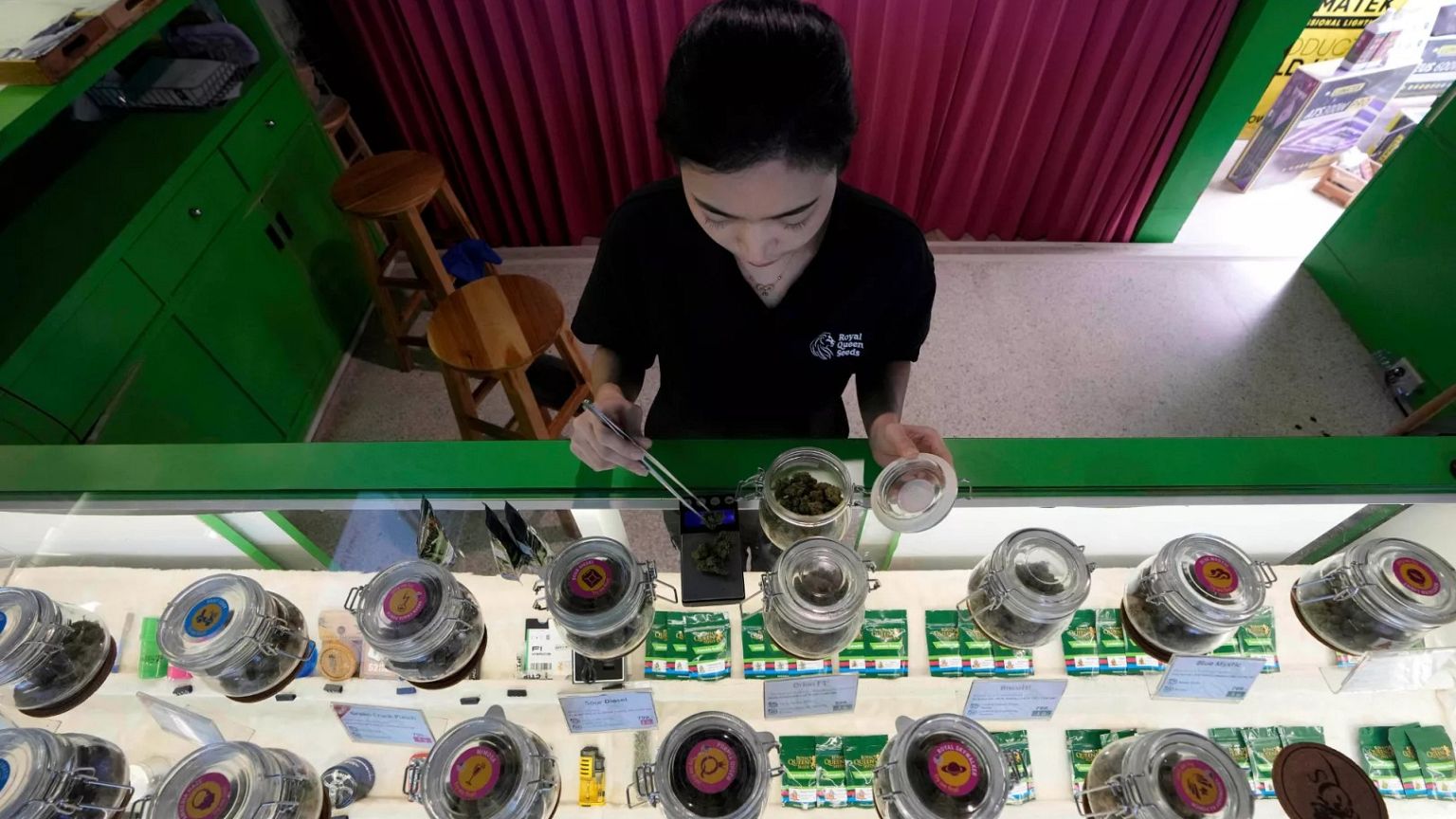OUTLAW LESE MAJESTE
Thai activist lawyer Anon Nampa faces over 29 years in prison over ‘Royal Insult’

A protester (center) standing in front of the Criminal Court on July 8, 2025, holding a picture of Anon Nampa (Photo by Ginger Cat). Source: Prachatai, content partner of Global Voices
This article was published by Prachatai, an independent news site in Thailand. An edited version has been republished by Global Voices under a content-sharing agreement.
Human rights lawyer and activist Anon Nampa has been sentenced to 2 years and 4 months in prison on charges of royal defamation and sedition, bringing his total prison sentence to 29 years and 1 month.
He was charged with royal defamation, sedition, participating in a gathering of more than 10 persons, and causing a breach of peace, as well as violations of the Emergency Decree, the Communicable Diseases Act, and the Public Assembly Act for participating in the November 17, 2020, protest in front of parliament to demand constitutional amendments.
Read more: Voices in a Bangkok rally a day after police used water cannon and tear gas against protesters
Thai Lawyers for Human Rights (TLHR) reported that the court found Anon guilty of royal defamation because it believed that, when he mentioned selfies and putting on an act in his speech, he was referring to King Vajiralongkorn’s visit to Udon Thani, in which he greeted supporters, and Princess Sirivannavari’s selfies with members of the public. Although Anon did not mention the King and the Princess by name, the Court said the speech was defamatory because it believed he was calling them fake. It is illegal in Thailand to “defame, insult, or threaten” the Thai royal family based on the controversial Lèse-majesté law.
The court noted that Anon often expressed his disagreement with the monarchy. Although he said he did not want to overthrow the monarchy by criticizing it, but wants it to co-exist with democracy and dignity, the court said that he should have found other, more appropriate ways of doing so.
Activist Parit Chiwarak also faced the same charges. However, he was found not guilty of royal defamation because his speech criticized the parliament building and its design, although he used it as a metaphor about the structure of society and the monarchy.
The court found Anon and Parit not guilty of participating in a gathering and causing a breach of peace and violations of the Emergency Decree, the Communicable Diseases Act, and the Public Assembly Act because the protest was held in an open space at a time when disease control measures declared during the COVID-19 pandemic were already being relaxed. The prosecution could not prove that they organized the protest, and so he was not responsible for notifying the authorities of the protest or keeping it peaceful. Sharing the Facebook post announcing the protest does not mean that they organized it.
The court ruled that the protest was peaceful, and that the right to protest is enshrined in the Constitution and international laws, and so could not be limited by the police. Anon and Parit also told the protesters to stay peaceful and not try to incite unrest. The court also noted that most of those injured by tear gas and water cannons were pro-democracy protesters, and so they were not the cause of the violence. Anon and Parit also did not threaten Parliament into passing constitutional amendment bills in their speeches.
Nevertheless, the court found Anon and Parit guilty of sedition because they announced the end of the protest and called for another protest the next day at the police headquarters.
Anon was sentenced to three years in prison for royal defamation, reduced to 2 years because the witness examination provided useful information. He was sentenced to 6 months for sedition, reduced to four months for the same reason, bringing his total prison sentence in this case to two years and four months.
Anon has so far been found guilty of 10 counts of royal defamation, one count of sedition, one count of violating the Emergency Decree, and one count of contempt of court. The latest verdict brought the total prison sentence he is facing for his activism to 26 years, 37 months, and 20 days, or around 29 years and 1 month. He has been detained pending appeal at the Bangkok Remand Prison since 26 September 2023.
Parit, meanwhile, was sentenced to six months in prison for sedition, later reduced to four months.
The November 17 protest took place at the same time as a special parliamentary session, during which senators and MPs discussed seven proposals for constitutional amendments, including the so-called “people’s draft,” proposed by iLaw, a legal watchdog NGO, and endorsed by 98,041 voters. None of the drafts were passed.
The protest was met with blockades and riot police. Tear gas and water mixed with chemical irritants from water cannons were fired at protesters occupying Samsen Road and Kiak Kai intersection. There were reports of more than 10 waves of tear gas being used on protesters, both in canister form and from the water cannon, as well as some clashes between pro-monarchy protesters and pro-democracy protest guards.


























